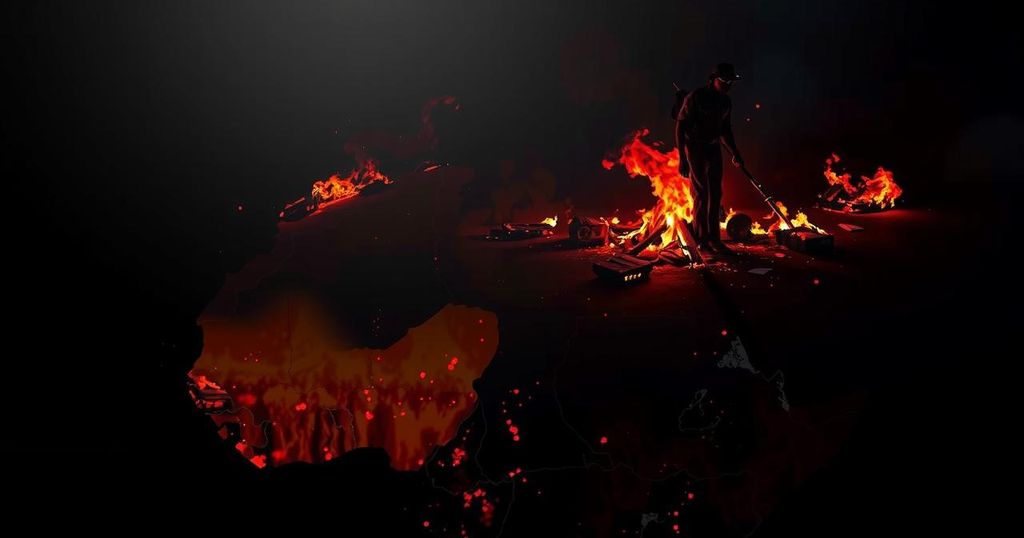A senior UN official reported to the Security Council that the ongoing war in Sudan and instability in South Sudan are impeding progress on the final status of Abyei and border issues. With increasing violence and a humanitarian crisis stemming from refugee influxes, the UN Interim Security Force for Abyei continues to face significant operational challenges. The situation demands heightened international support to restore peace and facilitate necessary political dialogue.
On Wednesday, a senior United Nations official informed the Security Council that ongoing warfare in Sudan, coupled with political instability in South Sudan, has significantly hindered advancements in discussions regarding the final status of Abyei and associated border matters. Martha Ama Akyaa Pobee, the Assistant Secretary-General for Africa, emphasized the dire impact of the Sudan conflict on both nations’ security, economy, and humanitarian conditions, particularly in the Abyei region. The conflict’s repercussions have exacerbated the humanitarian crisis, with a considerable influx of refugees fleeing the fighting into South Sudan, impacting an already strained infrastructure. Ama highlighted that the incursion of armed groups, specifically Rapid Support Forces, into Abyei has led to heightened tensions and violence among local communities. Additionally, the adverse effects of climate change, such as flooding, have further displaced over 18,000 individuals in Abyei. The ongoing military confrontation between the Sudanese Armed Forces and the Rapid Support Forces continues to destabilize not just Sudan and South Sudan but also the broader Horn of Africa region. Currently, the United Nations Interim Security Force for Abyei (UNISFA) has not seen any progress regarding dialogues on Abyei’s status, despite its essential role in monitoring the situation and attempting to facilitate political dialogues. UNISFA remains focused on maintaining stability in the region, particularly in fostering reconciliation among the Ngok Dinka and Misseriya communities. Furthermore, Ama noted with concern the presence of South Sudanese security forces in southern Abyei, which violates existing agreements and impedes UNISFA’s operations. The influx of displaced individuals from Sudan has also strained local resources, resulting in increased crime rates. Consequently, Ama called upon the Security Council to provide enhanced support for UNISFA, particularly as the mission seeks to implement fully mandated police deployments to uphold the rule of law in Abyei.
The current conflict in Sudan, which has persisted for nearly nineteen months, has severely impacted the political landscape and humanitarian conditions in both Sudan and South Sudan. Abyei, a disputed region, remains a focal point of tension between the two nations, complicating efforts to resolve border issues and establish a definitive status of governance. The UN has sought to mediate these issues through its Interim Security Force for Abyei (UNISFA), yet continuous violence and political instability in South Sudan have stalled any productive dialogue. The humanitarian crisis exacerbated by the influx of refugees and environmental challenges, such as flooding, places further pressure on an already fragile situation.
In summary, the security and humanitarian crises stemming from the ongoing war in Sudan are profoundly affecting political dialogue regarding Abyei’s status and border issues between Sudan and South Sudan. The UN, through UNISFA, is working to maintain stability and promote reconciliation, yet significant challenges remain due to the incursions of armed groups, climate-related displacement, and ongoing political instability. A call to the international community for enhanced support is crucial to addressing these escalating challenges and facilitating a resolution.
Original Source: www.radiotamazuj.org






